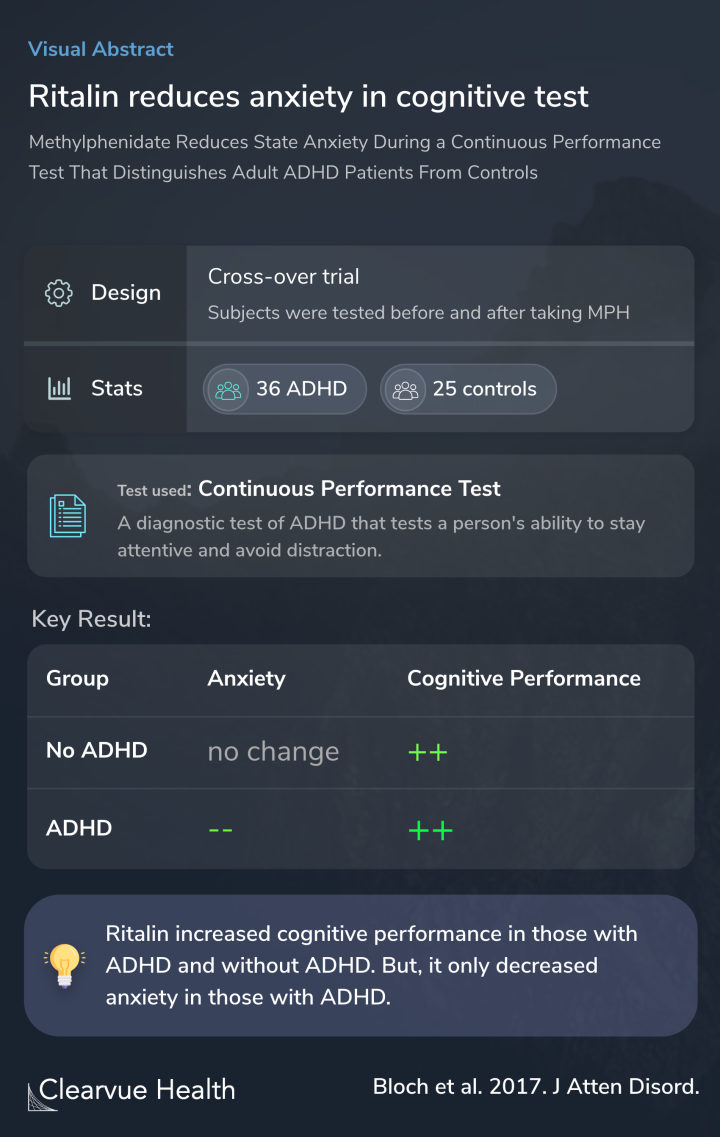Methylphenidate Reduces State Anxiety During a Continuous Performance Test That Distinguishes Adult ADHD Patients From Controls
Ritalin reduces anxiety in cognitive test
Yuval Bloch , Shai Aviram , Aviv Segev , Uri Nitzan , Yechiel Levkovitz , Yoram Braw , Aviva Mimouni Bloch

Objectives
ADHD is a complex condition that we are still in the process of understanding. We know that many have difficulties with attention, but it’s not yet entirely clear why.
Some experts theorize that anxiety and distress play a role in ADHD symptoms.
This is consistent with the high rates of anxiety disorders found in those with ADHD:
Based on this theory, researchers wanted to see whether ADHD medication, in this case, Ritalin, could decrease anxiety during testing.
We hypothesized that patients with ADHD were typified by distress more than by functional difficulties. Thus, a decline in state anxiety while performing a cognitive task when taking methylphenidate would discriminate between ADHD patients and controls.
Methods
Researchers conducted a small trial using a continuous performance test, one of the most commonly used cognitive test types to help diagnose ADHD.
This test measures a person's ability to stay focused and attentive while avoiding distraction. Those with ADHD tend to struggle with this.
State anxiety and cognitive performance on a continuous performance test were assessed in ADHD patients and controls with and without taking methylphenidate.
Results
The results showed that both those with ADHD and those without ADHD improved cognitive performance when provided with methylphenidate, the generic form of Ritalin.
Regardless of ADHD status, Ritalin helped participants focus on the continuous performance task.
However, only those with ADHD showed improvements in anxiety during the test.
State anxiety and cognitive performance improved from baseline in 36 ADHD adults after taking methylphenidate. In 25 controls, cognitive performance improved, but state anxiety did not abate after a recess. In two additional studies, 5 controls were evaluated at baseline and after receiv...
Conclusions
These results provide evidence that many of the symptoms we associate with ADHD, particularly in the classroom, may come as a result of anxiety. Test anxiety can get in the way of performance at school and work.
One of the mechanisms behind ADHD medication might be its effect in reducing anxiety in those with ADHD.
Our results support the hypothesis that adult ADHD patients are characterized by distress and the relief of this distress under effective therapy as expressed by a decline in state anxiety while they perform a cognitive task.